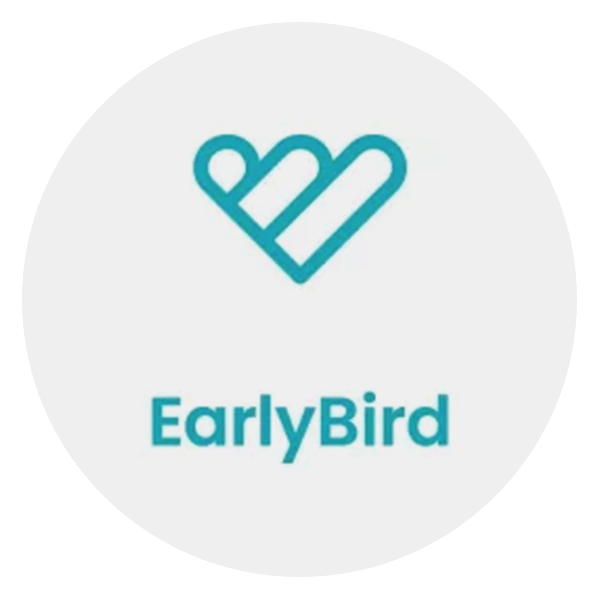How to Save Money for Your Child With a Custodial Account for Minors
We all want the best for our kids—so when it comes to planning for baby’s financial future, parents are eager to set aside money for their children to access down the line. Many parents opt to open a simple savings account to stash all the monetary birthday gifts that will trickle in through the years. And there’s nothing wrong with that; there’s no risk of losing the money, and your bank probably pays a little bit of interest over time. But what if you could grow your child’s money over the next decade or so?
A custodial account—which allows parents to invest their kids’ cash in mutual funds, stocks, bonds and exchange-traded funds (ETFs)—is one way to do so. It can increase the money over time and see returns on your balance. Want to learn more about the ins and outs of custodial accounts for minors? Here’s everything you need to know—including expert-backed advice to streamline your experience.
Simply put, a custodial account is a savings vehicle accessible through a financial institution or brokerage firm that adults control for minors under the age of 18—although that age can go as high as 25, depending on state laws. Parents (aka the custodians) are in charge of all transactions. To better understand exactly what custodial accounts are, we got in touch with Jordan Wexler, CEO of EarlyBird, a fintech mobile app that helps parents open and maintain custodial accounts for their children. According to Wexler, these accounts “are the easiest way to save, invest and manage money on your child’s behalf until they reach the age of majority or the age that the assets in the custodial account are legally transferred to them.” While the amount of money required to open a custodial account can be minimal, the fees associated with having one vary depending on who you’re banking with. For instance, the monthly fees at Earlybird start at just $2.95 per month.
What are UGMA and UTMA accounts?
There are two types of custodial accounts: UGMAs (Uniform Gifts to Minors Act) and UTMAs (Uniform Transfers to Minors Act). So, what’s the difference? Wexler tells us that UGMAs are the original custodial accounts for children, which have been around since 1956. Available nationwide, this type of account “allows parents to purchase and hold financial assets such as stocks, bonds, ETFs, cash and so on,” he explains. On the other hand, a UTMA account is an expanded version of the former, which can enable parents to invest in a bigger pool of assets—such as real estate or fine art. “However,” continues Wexler, “it’s only available in a handful of states.” Over time, as you contribute to your child’s custodial account, the money you “gift” to them can be invested on their behalf. Down the line, they’ll then be able to access the proceeds at their lower tax rate. “Though broker-dealers offer a lot of flexibility with custodial accounts—you can buy and sell what you want when you want—some families find it better to delegate that responsibility to a more experienced party,” comments Wexler. This is where an app like Earlybird can make it easier to manage and grow the contents of your child’s custodial account.
One of the biggest advantages of custodial savings accounts revolves around accessibility. Anyone—whether it’s a parent, grandparent, aunt or another loved one—can open a custodial account; that person can then contribute up to $17,000 per year (as of 2023) without incurring the federal gift tax. “Custodial accounts offer families a better way to invest in their child and glean the benefits of long-term appreciation and preferred taxation,” adds Wexler. “Instead of keeping money in a bank account, families can delegate money to a particular account—which makes it easier to track, and easier to keep separate from personal finances.” Here, check out a few more advantages custodial accounts for minors offer, compared to other brokerage account types:
- Tax advantages. Since investment income is seen as “unearned income” by the government, “proceeds from a custodial account might be taxed at a lower rate until your child starts filing taxes,” says Wexler. In 2023, anything above $2,500 will be taxed at your (the parents’) rate—but this is only until your child reaches the age of majority. At that point, the assets will legally be transferred to them and the proceeds will be taxed at their tax rate. This may take place when your child turns 24—or earlier, at the age of 19, if they are no longer a full-time student.
- Long-term appreciation. By contributing to a custodial account, your money can grow substantially over time. Wexler cites McKinsey’s insights, which show how stocks generate an average return of 6.5 to 7 percent per year, allowing them to not only keep up with but greatly surpass inflation.
- Flexibility. All in all, one of the biggest pros is that your child can use the proceeds in a custodial account for anything: school, rent, a downpayment on a house, a wedding and so on. To help you navigate the versatility of the brokerage account, Wexler notes that “you could manage a custodial account yourself, hire a financial planner, or put your money on autopilot with a roboadvisor like EarlyBird.”
Potential drawbacks of custodial accounts for minors
As with any long-term investment, there are some potential drawbacks to keep in mind before opening a custodial account for minors. It’s worth noting that because custodial accounts are considered assets, they could hurt your child’s eligibility to receive financial aid when the time comes to apply for college. Another point to consider is that “once you make a contribution to your child’s custodial account, that money is theirs,” says Wexler. There are exceptions, but any withdrawal made before they reach the age of majority is required to be for the direct benefit of the child—for example, new clothes or braces. Lastly, while they do offer flexibility and freedom because of this, custodial accounts for minors are not qualified accounts. If you want to save for your child’s education, Wexler recommends choosing a 529 account which can provide “tax benefits when utilized to pay for college, K-12 schooling or apprenticeship programs.”
To open a custodial account, all you need is basic information about your child: name, birthday and social security number. Once it’s set up, you manage all the action in the account, which revolves around deposits and deciding which assets to invest in. You can also make cash withdrawals at any time, but the money must be used on behalf of your kid. Keep in mind that there may be fees involved with getting out of certain assets, and any capital gains on liquidated funds are subject to taxes.
When it comes to taxes and custodial accounts, know that any deposit over $17,000 initiates the federal gift tax. Children who file taxes on their parents’ return are allowed a certain amount of unearned income at a reduced rate. As of 2023, the first $1,250 isn’t taxed annually. The next $1,250 gets taxed at the child’s bracket—about 10 percent—and anything over that is taxed at your (the parents’) rate.
Opening a custodial account for your child will involve dealing with stocks or stock-like funds, such as ETFs. If you’re at all skittish about exposing your child’s money to the bit of risk that dabbling in the market requires, remember history shows that for the long-term, investing in stocks and mutual funds is a much more lucrative way to earn interest than what a basic savings account will return. Luckily, this is all something Earlybird can help you with.
Earlybird’s service revolves around its app, which offers parents an easy, seamless way to save for their child’s future. With the roboadvisor, you’ll be able to set up a custodial account, choose your preferred level of risk and invite friends and family to contribute. What’s more, you can also use Earlybird to preserve moments that matter throughout your kiddo’s life. Upload videos, photos and other media to privately share with loved ones who are also using the app. Thanks to technology, there’s more access and insight into investment planning than before, so why not make the most of it?
Plus, more from The Bump:
Jordan Wexler is the CEO of EarlyBird, a fintech mobile app that helps parents open and maintain custodial accounts for their children. He was previously the COO of the software development company Agility.IO and has been involved in numerous startups over the course of his career.
McKinsey Insights, Prime Numbers: Markets will be markets: An analysis of long-term returns from the S&P 500, August 2022
Learn how we keep our content accurate and up-to-date by reading our medical review and editorial process.
Navigate forward to interact with the calendar and select a date. Press the question mark key to get the keyboard shortcuts for changing dates.






















































